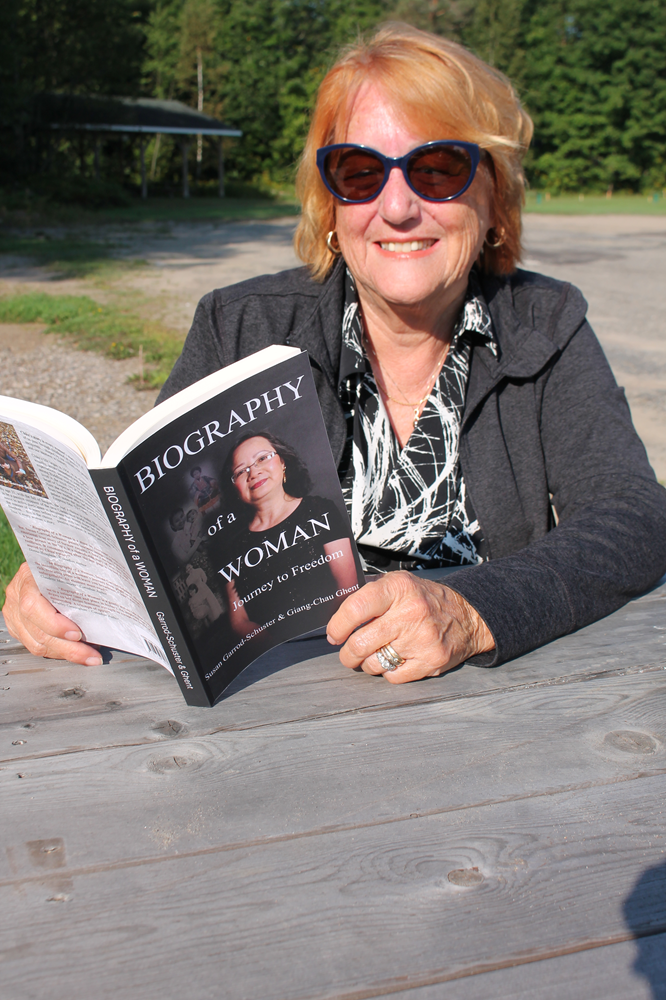Redstone Lake cottager, Susan GarrodSchuster, was at book club discussing Kim Thuy’s Ru – about a woman escaping Vietnam’s Tet Offensive – when she heard acquaintance, Giang-Chau Ghent (whom she calls Chau) tell her own story.
Chau is the great-niece of the last empress of Vietnam. She is now married to the brother of Garrod-Schuster’s friend, Martha. Chau fled Vietnam to make a new life in Canada.
After she shared Chau’s story, GarrodSchuster said she couldn’t get it out of her mind.
“I said to Martha, ‘that story has to be told’. I phoned Chau and asked, ‘have you ever thought about writing this story?’ She burst into tears and said, ‘I’ve wanted to write it forever but my English isn’t good enough and every time I remember what happened – I cry.”
The telling and the writing took seven years to complete.
Garrod-Schuster will be at Master’s Book Store in Haliburton Aug. 30, from 11 a.m. to 3 p.m.
The labour of love included extensive research into the geography and history of the Asian country, including the war, although Garrod-Schuster emphasizes war is not the focus of the book. The first part details Chau’s life growing up in the royal family’s palace compound, until the age of 25 when she escaped, first to a refugee camp, and then coming to Canada. She married and had children of her own. She returned to her native country for a visit in 2015.
She went from a place where if you dropped a spoon, a servant picked it up for you, to a refugee camp where she lined up for food. She came to Canada with two siblings. She raised $20,000 to sponsor her mother and another four siblings to come. Now, all 10 siblings are in Canada.
The author tells of how the women in the family saved gold leaf and American dollars and sewed them into clothing before fleeing, so it is also a tale of matriarchal feminism.
She thinks the book will appeal to “anyone who enjoys history, or things about other countries.” For her, an immigrant from the U.K., she says there is no comparison to Chau as she was not a refugee, and spoke English. Chau was in danger for weeks.
One of the highlights for her in the writing was pride in nation, as in 1979, Canada welcomed 60,000 refugees from Vietnam, Cambodia and Laos.
Garrod-Schuster came to the Highlands in the mid-90s, where the family initially built a bunkie and lived off-grid in summer for about 10 years, before constructing a threeseason dwelling. It’s there much of this book was written.
“To me, there’s nowhere like Haliburton (County). I just absolutely love it here.”
Garrod-Schuster said she has been a writer her entire life, and especially when preparing weekly sermons as a United Church minister.
“I always wrote, and my messages on a Sunday were always story-driven. Always through the week, I looked for stories that I could share.” As a sessional lecturer at University of Toronto and York University, she added she was always looking for story material, even in the classroom.
She’s now working on a collection of short stories about being a minister in rural Ontario, and describes it as humorous, in the vein of Stuart McLean’s The Vinyl Café.





